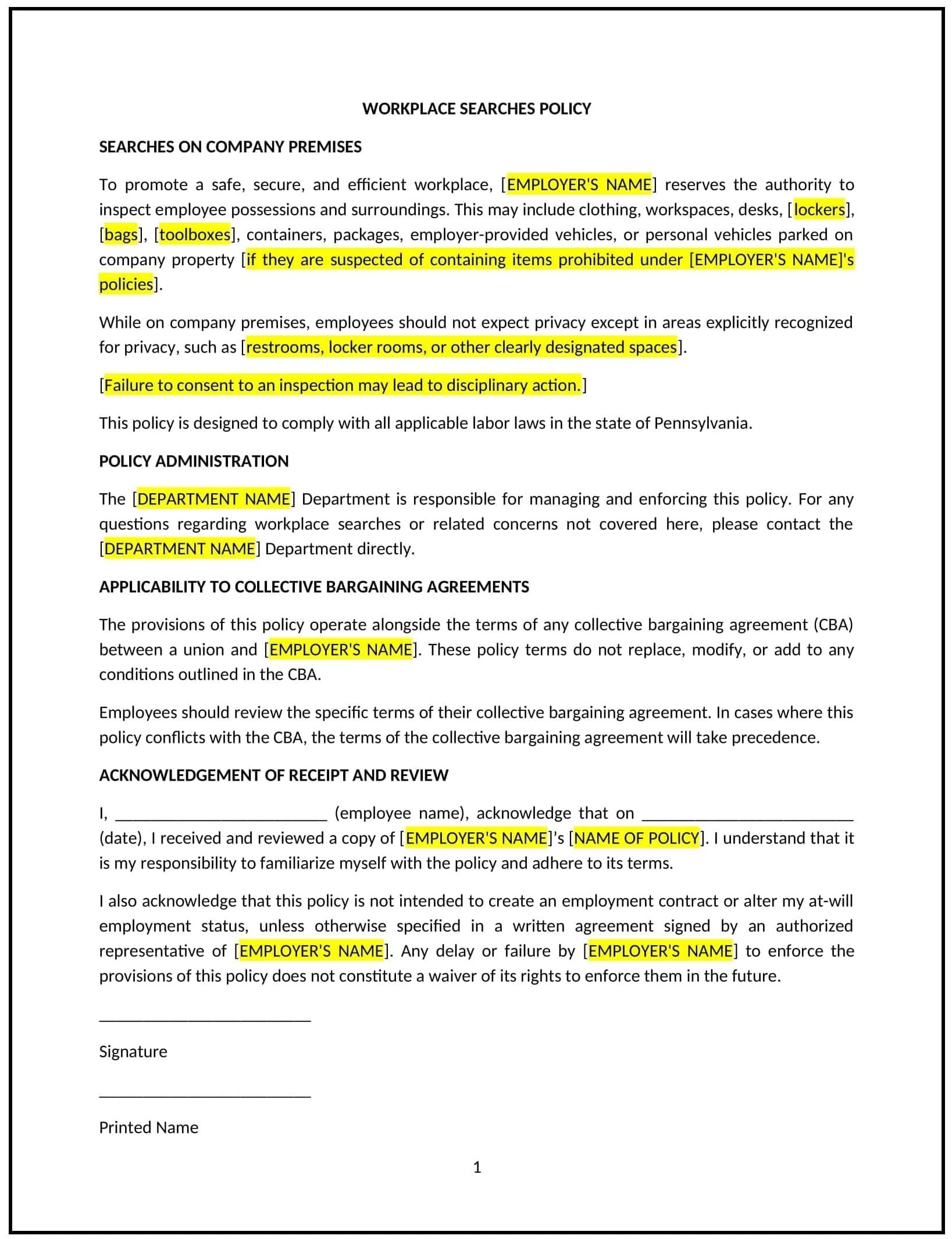Workplace searches policy (Pennsylvania): Free template
Got contracts to review? While you're here for policies, let Cobrief make contract review effortless—start your free review now.

Customize this template for free
Workplace searches policy (Pennsylvania)
This workplace searches policy is designed to help businesses in Pennsylvania establish clear guidelines for conducting searches on company property to ensure safety, protect assets, and maintain compliance with workplace policies. By defining search procedures, employee rights, and privacy considerations, this template promotes transparency and minimizes legal risks.
By using this template, businesses can create a secure environment, protect company property, and align with Pennsylvania labor laws.
How to use this workplace searches policy (Pennsylvania)
- Define the scope of searches: Clearly outline the areas and items subject to searches, such as lockers, desks, electronic devices, and vehicles on company property.
- Establish reasons for searches: Specify the circumstances under which searches may be conducted, such as suspicion of policy violations, theft, or safety concerns.
- Include employee rights: Address privacy considerations and ensure searches are conducted respectfully and in compliance with Pennsylvania laws.
- Detail search procedures: Provide step-by-step guidelines for conducting searches, including documentation and the involvement of witnesses or supervisors.
- Reflect Pennsylvania-specific considerations: Tailor the policy to align with local labor laws or industry standards regarding employee privacy and workplace searches.
Benefits of using a workplace searches policy (Pennsylvania)
A well-structured workplace searches policy supports security and transparency. Here's how it helps:
- Enhances security: Helps protect company assets, prevent theft, and ensure workplace safety.
- Supports compliance: Aligns with Pennsylvania labor laws and privacy protections to minimize legal risks.
- Promotes transparency: Establishes clear expectations for employees regarding workplace searches.
- Mitigates disputes: Provides guidelines for fair and consistent search procedures, reducing misunderstandings or conflicts.
- Reflects local needs: Considers Pennsylvania-specific regulations and industry practices regarding workplace searches and employee privacy.
Tips for using a workplace searches policy (Pennsylvania)
- Communicate the policy: Share the policy with employees during onboarding and ensure they are aware of their rights and responsibilities.
- Train managers: Provide training to supervisors on conducting searches respectfully and within the policy guidelines.
- Maintain documentation: Keep records of all searches, including the reasons, process followed, and outcomes, to ensure accountability.
- Use searches judiciously: Conduct searches only when necessary and in compliance with Pennsylvania laws to maintain trust and minimize conflicts.
- Review periodically: Update the policy to reflect changes in Pennsylvania regulations, workplace needs, or best practices.